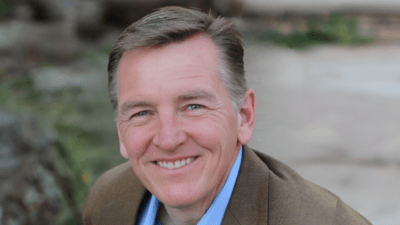Energy and Commerce Chairman Frank Pallone, Jr.’s (D-NJ) remarks as prepared for delivery for today’s Energy Subcommittee hearing titled, “Reviving Our Economy: COVID-19’s Impact to the Energy Sector:"
Today we are continuing the Committee’s work on addressing the COVID-19 pandemic by assessing its impact on the energy sector. We have a great group of witnesses, including former Energy Secretary Moniz, who I’m pleased to have back with us.
The COVID-19 pandemic has been devastating, killing more than 115,000 Americans and leading to more than 44 million Americans losing their jobs over the last three months. The pandemic has affected all energy industries, but the renewable energy and energy efficiency industries have been particularly hard hit. Social distancing measures, supply chain disruptions and stalled financing have placed a significant burden on energy efficiency, solar and wind projects. And this is all erasing years of progress in clean energy job creation and efforts to meet our carbon pollution reduction goals.
Prior to the pandemic, the clean energy industry employed 3.4 million Americans - nearly three times as many as the fossil fuel industry. The pandemic has wiped out over 600,000 of these jobs, and if these trends continue, some estimates show that 850,000 clean energy workers could file for unemployment by the end of this month.
My home state of New Jersey lost over 8,000 clean energy jobs in April alone - a nearly 15 percent decline, and of these losses, two-thirds were in energy efficiency, which is uniquely impacted by social distancing measures.
Municipally-owned utilities and rural cooperatives have also been adversely affected by this pandemic, and because they are not-for-profit entities, customers could ultimately be forced to pay much higher rates at a time when many are out of work. The oil and gas industry is also hurting, and we should be helping those workers along with others in the energy sector.
Clean energy workers are crucial to helping our transition to a more sustainable economy. Climate change is an existential crisis. And Congress must act to invest in clean energy infrastructure that will stimulate the economy, put Americans back to work and create new jobs in this industry critical to our nation’s future.
Our Committee has been working on infrastructure policy since the start of this Congress. Last year, we introduced the LIFT America Act, and then in January we unveiled the Moving Forward infrastructure proposal that includes more than $34 billion in clean energy investments. These investments will stimulate the economy, keep businesses competitive and create clean energy jobs during this severe economic downturn. At the same time, these investments will lower consumers’ energy bills and reduce carbon pollution.
The Majority Leader has announced that the House will vote on an infrastructure bill by the end of this month, and both the LIFT America Act and the Moving Forward framework provide a foundation of the energy provisions that will be included in that overall package.
It's also important to point out that the lack of certainty regarding renewable energy tax credits has hurt the industry. While recent action by the Department of Treasury to delay certain in-service dates has helped, the clean energy industry needs certainty and assistance. I believe it’s critical that any recovery package include an extension of these expiring tax credits.
By creating new jobs in an industry that was steadily growing before the pandemic, we can maintain momentum towards a cleaner future.
It’s also critical that, as we help stimulate the energy sector, we are mindful of the need to make it more diverse - something Chairman Rush has made a priority on this Committee for many years. The response to the coronavirus pandemic has highlighted significant racial disparities across our country, and the recent tragic murder of George Floyd has catalyzed a national movement that is focusing attention on systemic racism. It is long past time for the energy sector to increase diversity in its workforce, and I hope we can begin to see real progress soon.




